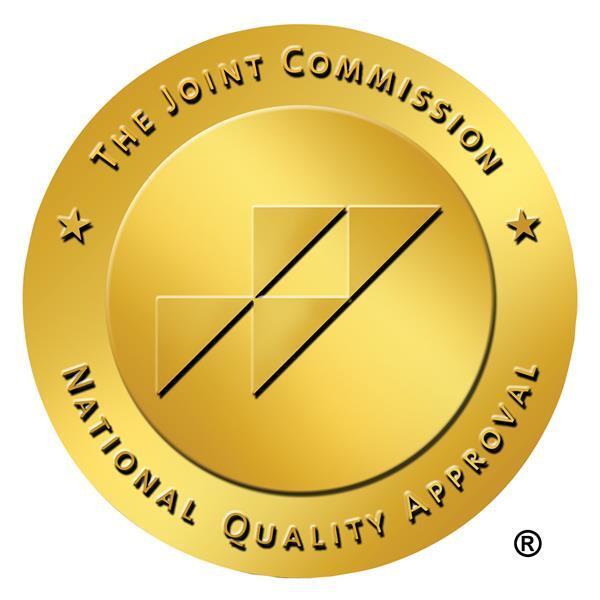Mental Health Services: Exploring Options
Learn more about how mental health services at Mind Body Optimization can make all the difference in achieving lasting wellness.
Table of Contents
Importance of Comprehensive Mental Health Services
Mind Body Optimization (MBO) is dedicated to providing top-tier mental health services across our facilities in Texas and Tennessee.
Our Mission
Our mission is to offer whole-person and evidence-based mental health care that addresses the unique needs of each client. We believe in a comprehensive approach to mental wellness, integrating various therapeutic modalities to ensure effective and sustainable healing.
Comprehensive mental health services are essential in promoting well-being and recovery. Mental health conditions are complex and multifaceted, requiring a thorough and integrated approach to treatment.
By addressing not just the symptoms but also the underlying causes and contributing factors, our clients can achieve long-term mental wellness.

Core Mental Health Services
Mental health services encompass a range of treatments and support systems designed to help people navigate mental health challenges. At MBO, we offer a comprehensive suite of services tailored to meet each client’s unique needs.
Assessment and Diagnosis
Assessment and diagnosis are the first steps in identifying and treating mental health conditions. These mental health services are suitable for anyone experiencing symptoms of mental health conditions or those who have concerns about their mental well-being.
Our process involves:
- Thorough evaluations of symptoms and current mental health state
- Discussions of medical history, family history, and any relevant life events
- Utilizing evidence-based tools to aid in the diagnosis
A correct diagnosis is essential for effective treatment. Our clinicians are trained to listen and understand, ensuring that people feel heard and respected. This thorough evaluation process is designed to provide clients with a clear diagnosis and a roadmap for treatment.
Mental Health Services: Counseling
Therapy is also known as psychotherapy or counseling. It involves meeting with a therapist on a one-on-one basis to work through mental health challenges. This type of therapy allows for personalized and focused treatment based on a person’s specific needs and goals.
Our therapists use a range of evidence-based approaches, including:
Cognitive-Behavioral Therapy (CBT)
CBT helps people become aware of negative thoughts and beliefs that contribute to emotional distress. Clients will learn to recognize these patterns and understand how they impact their feelings and behaviors.
Once negative thought patterns are identified, therapists will guide clients in challenging these thoughts and replacing them with more realistic and positive ones.
This approach can help people manage:
- Anxiety
- Depression
- Other mental health conditions
Dialectical Behavior Therapy (DBT)
DBT combines cognitive-behavioral techniques with mindfulness practices. It is especially useful for people struggling with emotion regulation, self-harm, and borderline personality disorder.
DBT includes skills training in four key areas:
- Mindfulness
- Distress tolerance
- Emotion regulation
- Interpersonal effectiveness
These skills help people manage intense emotions, cope with stress, and improve relationships.
Other Evidence-Based Approaches
Our therapists are also trained in a variety of other evidence-based treatment modalities, including:
- Eye movement desensitization and reprocessing (EMDR)
- Motivational interviewing (MI)
- Hormone testing (coming soon)
- TMS (coming soon)
These approaches may be used in conjunction with CBT or DBT to further support a person’s mental health journey. Our therapists work closely with clients to determine the best approach and develop a personalized treatment plan.
Mental Health Services: Family Therapy
Family therapy is another form of group therapy that focuses on strengthening relationships and improving communication within a family unit.
It can be particularly helpful for families dealing with a range of issues, including:1
- Parent-child conflict
- Blended family challenges
- Grief and loss
- Substance misuse or addiction within the family
- Mental health issues of one or more family members
Benefits of Family Therapy
Through open and honest communication, family therapy can help:
- Improve understanding
- Reduce conflicts
- Build stronger relationships
- Promote a stronger sense of belonging within the family unit
- Increase overall family satisfaction
It also allows all family members to take part in the healing process and work toward finding solutions together. It can be a powerful tool for creating positive change within the family dynamic, leading to improved mental health and well-being for all members.
Mental Health Services: Integrative Therapies and Approaches
Mental health services are most effective when they address the whole person.
At MBO, whole-person, innovative therapies and integrative approaches encompass a range of non-traditional methods. These treatments emphasize the interconnectedness of mind, body, and spirit. This promotes healing and wellness from multiple perspectives.
Meditation
One of the most common complementary mental health services is meditation. Meditation is a practice that involves focusing the mind to achieve a state of calm and clarity.
Benefits of Meditation
Meditation helps people develop mindfulness, which is the practice of being present and fully engaged in the current moment. Mindfulness can improve a person’s awareness of thoughts and feelings, allowing them to respond to them more effectively.
Meditation helps people develop mindfulness, which is the practice of being present and fully engaged in the current moment. Mindfulness can improve a person’s awareness of thoughts and feelings, allowing them to respond to them more effectively.
Regular meditation practice has been shown to reduce stress levels by promoting relaxation and decreasing the body’s stress response. It helps lower cortisol levels, which are often elevated during stressful periods.
It also aids emotional regulation by helping people understand and manage your emotions better. It enhances their ability to stay calm and centered, even in challenging situations.
Art and Music Therapy
Art and music therapy are mental health services that facilitate emotional expression and healing. These therapies use creative processes to help people explore and express feelings that may be difficult to articulate through words.
Art therapy allows people to express emotions and experiences through creative activities such as drawing, painting, and sculpting. This can be particularly helpful for processing complex feelings and experiences.
Engaging in art therapy can lead to greater self-awareness and insight. The creative process can help people uncover underlying issues and gain a deeper understanding of themselves.
Music Therapy
Music has a powerful impact on the brain and can be used to reduce stress and anxiety. Music therapy sessions often include activities such as:
- Listening to calming music
- Playing instruments
- Songwriting
Taking part in music therapy can foster a sense of connection and support. Group music therapy sessions provide an opportunity to share musical experiences and connect with others.
Nutrition Counseling (Coming Soon)
Eating well is crucial for maintaining both physical and mental health. When we are under stress, our bodies may crave unhealthy foods as a coping mechanism. Nutritional deficiencies can also contribute to mental health issues.
Nutrition counseling can help people understand the relationship between what they eat and how they feel.
The Relationship Between Food and Mental Health
Clients will learn about the relationship between food and mental health, including how certain nutrients can affect:
- Mood
- Energy levels
- Cognitive function
The nutritionist will provide guidance on making healthier food choices and incorporating nutrient-rich foods into a client’s diet.
Meal Plans
They may also help people develop a meal plan that supports their mental health goals. For someone struggling with mental health issues, a meal plan may include foods that can:2
- Boost serotonin levels
- Reduce inflammation
- Improve gut health
Physical Fitness Programs
Regular physical activity has been shown to reduce symptoms of depression, anxiety, and stress. Our physical fitness programs include structured sessions with fitness professionals who guide clients through exercise routines.
These sessions ensure that clients perform exercises correctly and safely, maximizing the benefits of your workout. A workout plan depends on a client’s specific needs and abilities.
It may include:
- Aerobic exercises
- Strength training
- Flexibility exercises
- Other activities that promote fitness
Staying Motivated
Staying motivated is a key aspect of maintaining a fitness routine. Our fitness professionals provide ongoing support and encouragement, helping clients stay committed to their fitness goals.
Regular check-ins and progress assessments ensure that clients continue to make strides in their physical and mental health journey.
Mental Health Services: Multidisciplinary Team Approach
Our mental health services are delivered by a multidisciplinary team of professionals, including:
Psychiatrists
Psychiatrists are medical doctors specializing in mental health. They diagnose and treat mental health conditions, often using medications to manage symptoms.
Psychologists
Psychologists focus on understanding and treating mental health conditions through psychotherapy and behavioral interventions. They:
- Conduct psychological assessments
- Provide therapy
- Develop treatment plans based on evidence-based practices
Therapists
Therapists, also known as counselors, provide talk therapy through individual, couples, or family sessions. They help people work through emotional and behavioral challenges and develop coping strategies.
Social Workers
Social workers provide a range of services, including:
- Counseling
- Advocacy
- Case management
They help clients navigate systems and connect with community resources.
Collaborative Care in Mental Health Services
The strength of our multidisciplinary team lies in our collaborative care model. This approach ensures that all team members work together to develop and implement comprehensive treatment plans tailored to each client’s needs.
Interdisciplinary Collaboration
At MBO, collaboration is at the heart of our practice. Our team meets regularly to:
- Discuss clients’ progress
- Share insights
- Adjust treatment plans as needed
This interdisciplinary approach ensures that all aspects of a person’s mental health are addressed, and no stone is left unturned in their care.
Comprehensive Treatment Plans
Treatment plans are developed through a collaborative process involving input from various team members.
This includes:
- An initial assessment
- Regular reviews
- Adjustments based on client progress and feedback
The goal is to create a plan that is effective, flexible, and responsive to evolving needs.
Continuity of Care
Our collaborative care model ensures continuity of care, meaning that all team members are informed and aligned with the treatment plan.
This continuity helps maintain a consistent and cohesive approach to mental health services, providing clients with reliable and comprehensive support.
Mental Health Services: Personalized Treatment Planning
Each person’s mental health journey is unique. At Mind Body Optimization, our personalized treatment planning ensures that our mental health services are tailored to meet each client’s specific needs and goals.
Comprehensive Assessments
The process begins with an initial consultation. Clients will take part in detailed interviews and tests with various members of our multidisciplinary team.
These explore different aspects of mental health, including:
- Symptoms: We will identify and analyze any symptoms clients may be experiencing. This includes both physical manifestations (e.g. changes in appetite or sleep patterns) as well as emotional and behavioral symptoms.
- Personal history: We will gather information about a client’s personal history. This includes any medical conditions, past mental health treatment, and experiences that may have contributed to current concerns.
- Social support: Our team will assess the strength of a person’s social support network and identify any areas that may need improvement. This can include relationships with family, friends, or community resources.
Client Input
Client input is a crucial part of developing a care plan.3 We believe that clients are the experts on their own experiences, and their insights are invaluable in creating an effective treatment strategy.
During the assessment, clients will have the opportunity to share their goals, preferences, and any concerns they may have.
Based on the assessment and client input, our team designs a care plan that includes a variety of therapeutic approaches.
Goal Setting and Monitoring
Setting clear, achievable goals and regularly monitoring progress are key elements of effective mental health services at MBO. This process helps ensure that treatment remains focused and effective.
Our team works with clients to identify specific goals that align with their needs and values. These may include short-term goals, such as:
- Managing anxiety or depression symptoms
- Improving communication and relationships with loved ones
- Developing coping skills for stress management
Long-Term Goals
Long-term goals may include:
- Achieving mental wellness and resilience
- Addressing underlying issues such as trauma or unresolved emotions
- Increasing self-awareness and personal growth
Progress is regularly monitored to ensure that clients are moving toward their goals. This involves ongoing assessments and feedback during therapy sessions, as well as periodic reviews of the treatment plan. Regular monitoring helps us identify what is working well and what may need adjustment.
Mental Health Services: Telehealth Opportunities
Attending in-person sessions is not always possible, and we strive to make mental health care available to all through various innovative approaches.
Telehealth has become an integral part of our mental health services, ensuring that clients can access the care they need regardless of their location or circumstances. Our telehealth options are designed to provide continuity of care and convenience for those who cannot attend in-person sessions.4
Our Telehealth Options
Our telehealth options include:
Video Conferencing
We offer secure video conferencing sessions that allow clients to have face-to-face interactions with a therapist or psychiatrist from the comfort of their home. These sessions are conducted using HIPAA-compliant platforms to ensure privacy and confidentiality.
Phone Consultations
For those who may not have access to video technology, phone consultations are available. These sessions provide a convenient alternative to in-person visits. This ensures that clients can still receive therapeutic support and medication management.
Remote Monitoring
Our team also utilizes remote monitoring technology to track client progress and provide real-time feedback.
This may involve using mobile applications to monitor:
- Symptoms
- Medication adherence
- Overall well-being
Mental Health Services: Increasing Accessibility
At MBO, we are dedicated to making mental health services accessible to everyone, regardless of their financial situation or background. We have implemented several strategies to ensure that our services are within reach for all who need them.
Insurance Partnerships
We have established partnerships with various insurance providers to broaden the range of coverage options available to our clients. Our administrative team works closely with each person to navigate insurance benefits and maximize their coverage for mental health services.
Outreach to Underserved Populations
MBO is committed to reaching underserved populations who may have limited access to mental health services. We engage in community outreach programs, offering workshops, and educational resources to raise awareness about mental health and the services we provide.
Language and Cultural Competence
Recognizing the diversity of our community, we provide services in multiple languages and ensure that our staff is trained in cultural competence. This approach helps us meet the needs of clients from different backgrounds and ensure that everyone feels understood and respected.

Measuring Success and Outcomes in Mental Health Services
Regular assessments and feedback help us understand how well our treatments are working and make necessary adjustments to optimize care. We use a variety of assessment tools to track client progress throughout treatment.
These assessments may include:
- Standardized questionnaires such as the PHQ-9 or GAD-7 to measure symptoms of depression and anxiety.
- Symptom checklists to assess specific symptoms such as sleep disturbances or intrusive thoughts.
- Functional assessments to evaluate how symptoms are impacting daily life and functioning.
- Clinical interviews to gather more in-depth information about client experiences and progress.
Client Feedback and Progress Reports
We also value feedback from our clients and regularly collect input through surveys and in-person discussions. This helps us understand how our services are meeting their needs and allows us to continuously improve our approach.
Periodically, we compile progress reports that summarize treatment progress and any changes that have occurred since starting therapy. These reports can be shared with the client, as well as any other healthcare providers involved in their care, to ensure continuity of care.
Commitment to Quality Improvement
At MBO, we are committed to continuous quality improvement. This commitment is driven by our dedication to client outcomes and the ongoing integration of best practices in mental health care.
We do this through:
- Data-driven decisions: We use data from assessments, feedback, and outcome measurement tools to make informed decisions about treatment. This helps us identify areas of strength and opportunities for growth in a person’s care.
- Best practices integration: Our team stays current with the latest research and developments in mental health care. We integrate best practices and evidence-based treatments into our programs, ensuring that clients receive the most effective care available.
- Continuous training: We invest in the ongoing training and development of our team members. This helps us maintain a high standard of care and ensures that we are equipped to provide clients with the best treatment possible.
As part of our commitment to quality improvement, we also regularly review our policies, procedures, and protocols to ensure that they align with industry standards and promote a safe and supportive environment for our clients.
Your Path to Wellness Starts Here
At MBO, we offer a wide range of evidence-based and whole-person mental health services designed to support you on your journey to wellness. Our comprehensive approach, compassionate team, and commitment to quality improvement make us a trusted choice for mental health care.
If you are seeking mental health support, we invite you to our facilities in Texas and Tennessee. Our team is ready to work with you to develop a personalized treatment plan that meets your unique needs and helps you achieve lasting recovery.
You don’t have to face your struggles alone. Let us be a part of your healing journey and help you build a brighter future.






